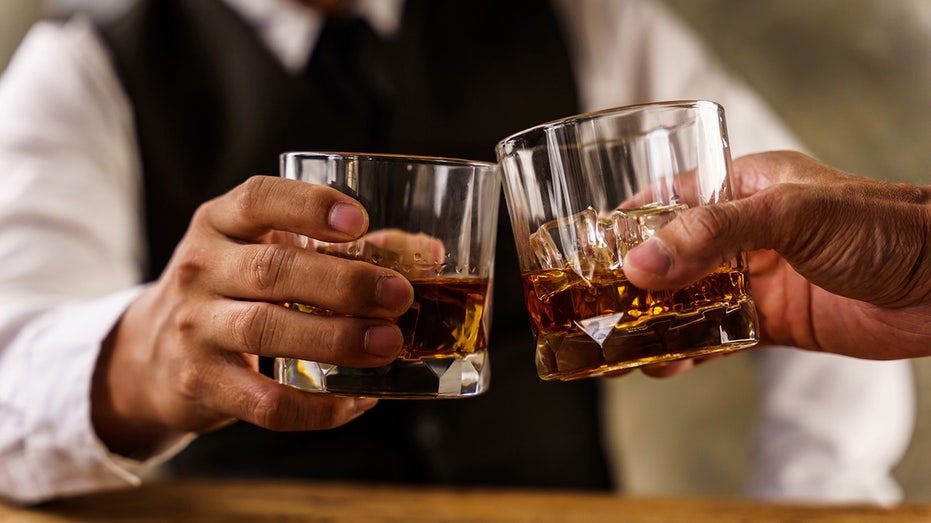A federal judge in Texas has ruled that an 1868 ban on at-home distilling is unconstitutional.
U.S. District Judge Mark Pittman, in his ruling on Wednesday, sided with the Hobby Distillers Association’s lawyers that the 156-year-old ban exceeded Congress’s taxing power and violated the U.S. Constitution’s Commerce Clause. The Hobby Distillers Association is a group that advocates legalizing a person’s production of spirits such as whiskey and bourbon for their personal consumption.
“Indeed, the Constitution is written to prevent societal amnesia of the defined limits it places on this government of and by the people,” Pittman wrote. “That is where the judiciary must declare when its coequal branches overstep their Constitutional authority. Congress has done so here.”
Pittman issued a permanent injunction prohibiting the U.S. government from enforcing the ban against the Hobby Distillers Association’s members. The judge also stayed his decision for 14 days to allow the government to seek a stay at the appellate court level.
ARIZONA RANCHER GEORGE ALAN KELLY HAS CHARGES DISMISSED IN MIGRANT SHOOTING CASE
People who violate the at-home distilling ban could face up to $10,000 in fines or five years in prison.
Devin Watkins, a lawyer for the Texas-based hobby group at the libertarian think tank Competitive Enterprise Institute, told Reuters that the ruling “respects the rights of our clients to live under a government of limited powers.”
The hobby group, which represented the plaintiffs, and four of its 1,300 members filed a lawsuit in December against the Alcohol and Tobacco Tax and Trade Bureau and the Department of Justice, saying that the government’s regulatory reach could not extend to activities within a person’s home.
The Alcohol and Tobacco Tax and Trade Bureau is a division of the Department of the Treasury that regulates and collects taxes on alcohol, while the Department of Justice can prosecute any felonies.
“This decision is a victory for personal freedoms and for federalism,” Competitive Enterprise Institute lawyer Dan Greenberg said. “We’re pleased to see that the court determined that the home distilling ban is unconstitutional – and that it blocked enforcement of the ban against our clients. More broadly, the court’s decision reminds us that, as Americans, we live under a government of limited powers.”
Pittman said that while three of the individual plaintiffs failed to prove they faced a credible threat of facing prosecution without an injunction, the group and one of its members, Scott McNutt, had carried their burden of showing they would be harmed if the ban was not blocked.
McNutt received an unsolicited letter from the Alcohol and Tobacco Tax and Trade Bureau that said he faced potential civil and criminal liability after it learned he may have purchased materials that could be used to distill spirits.
The Department of Justice claims the ban was a valid measure created by Congress to protect the substantial revenue the government raises from taxing distilled spirits by limiting where plants could be located.
TENNESSEE JUDGE DENIES RELEASE OF COVENANT SCHOOL SHOOTER’S WRITINGS TO THE PUBLIC
Pittman, however, said the ban was not a valid practice of Congress’ taxing power because it did not raise revenue and “did nothing more than statutorily ferment a crime.”
“While prohibiting the possession of an at-home still meant to distill beverage alcohol might be convenient to protect tax revenue on spirits, it is not a sufficiently clear corollary to the positive power of laying and collecting taxes,” the judge wrote.
The judge said the ban on at-home distilling could also not be covered under Congress’ power to regulate interstate commerce. He said the ban is “not a ‘comprehensive’ scheme of regulation because there are many aspects of the alcohol industry that Congress has left untouched.”
“While the federal government has become more enthusiastic about inflating the scope of its powers over the last century, this case shows that there are limits to the government’s authority,” Watkins, the lawyer for the Texas-based hobby group at the libertarian think tank Competitive Enterprise Institut said in a statement.
“If the government appeals this decision to a higher court, we look forward to illuminating those limits.”
Reuters contributed to this report.
























